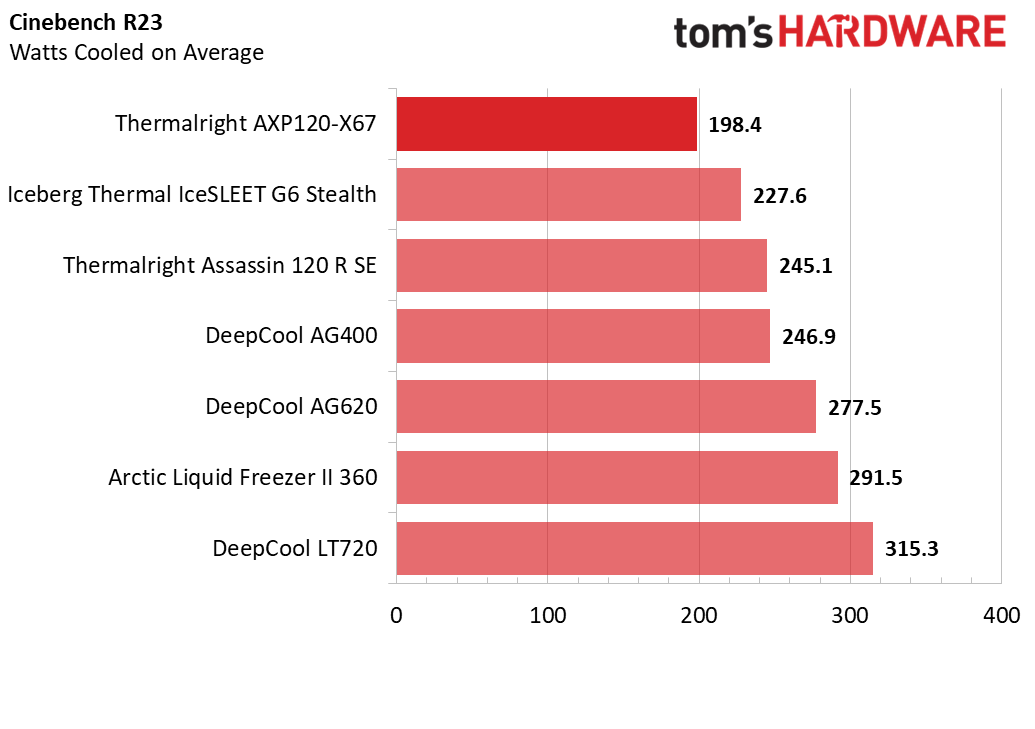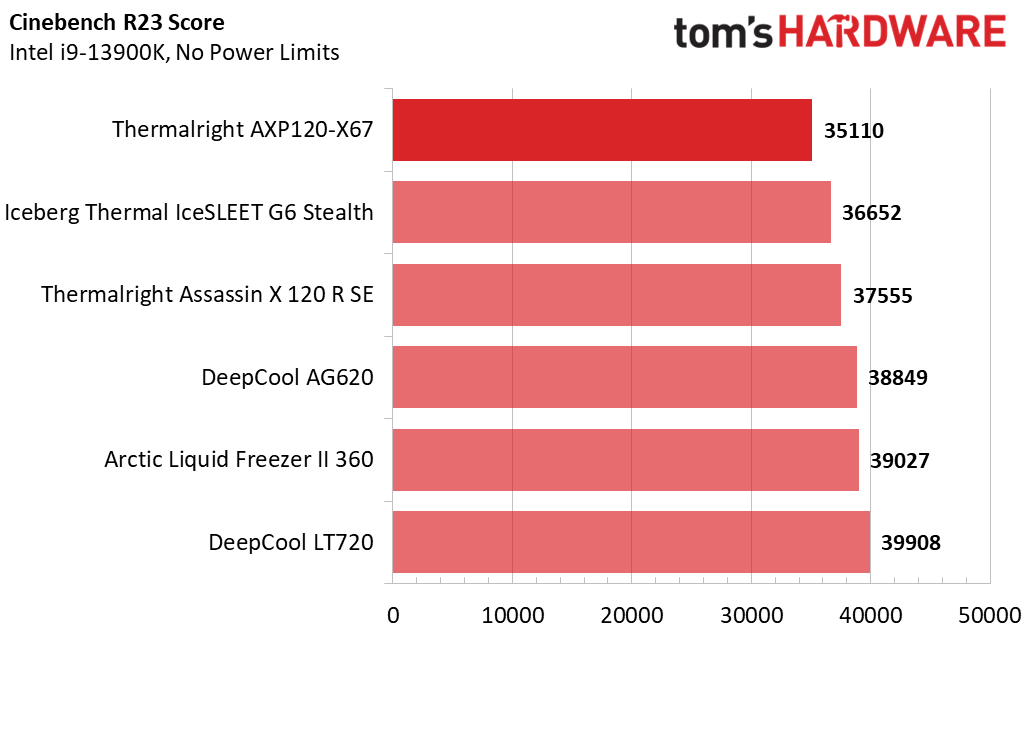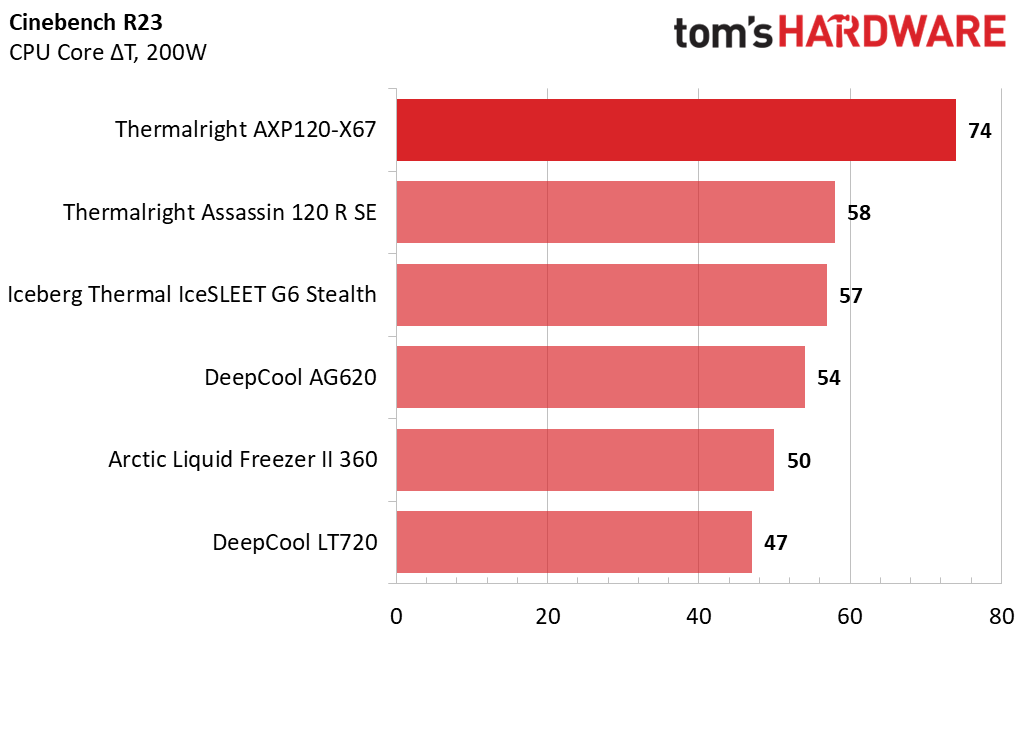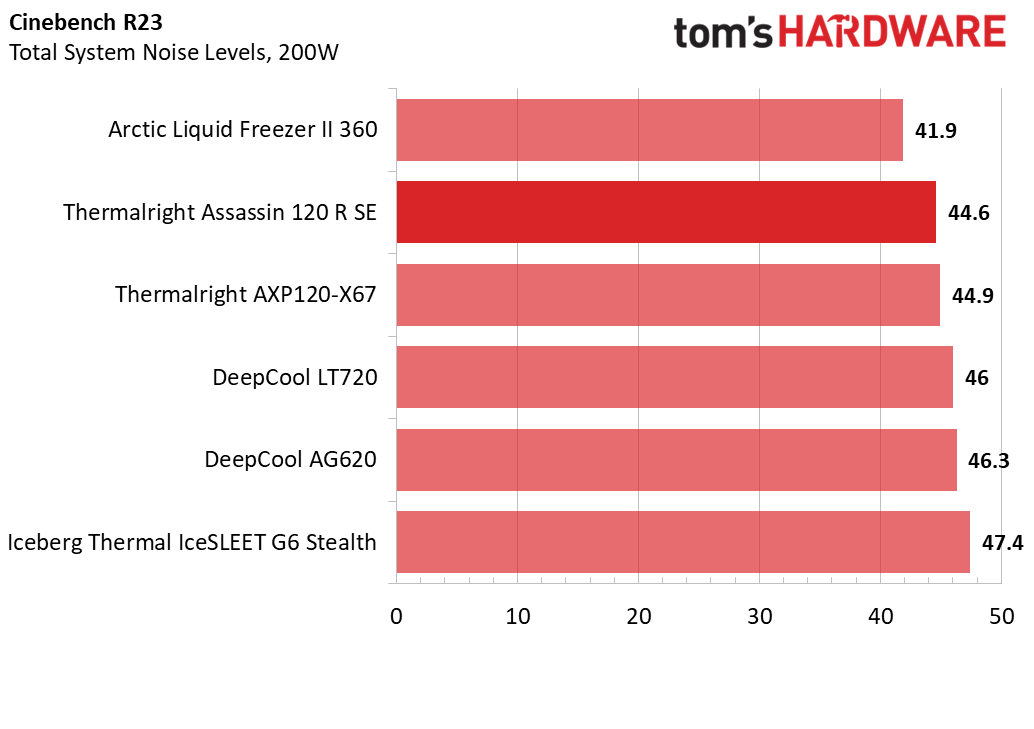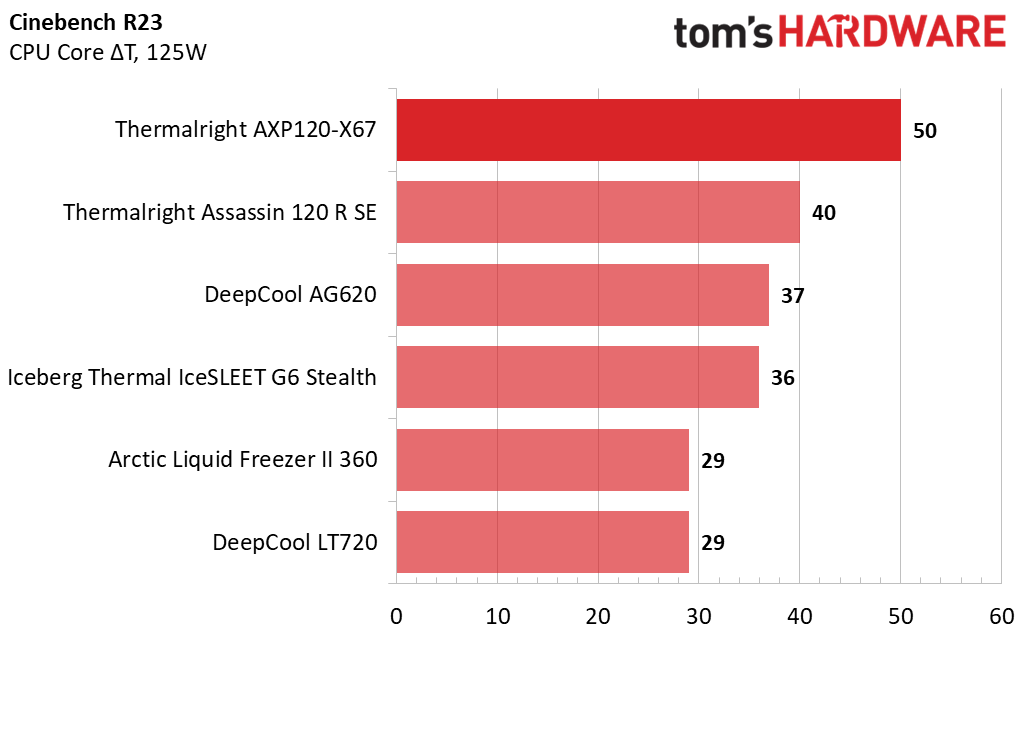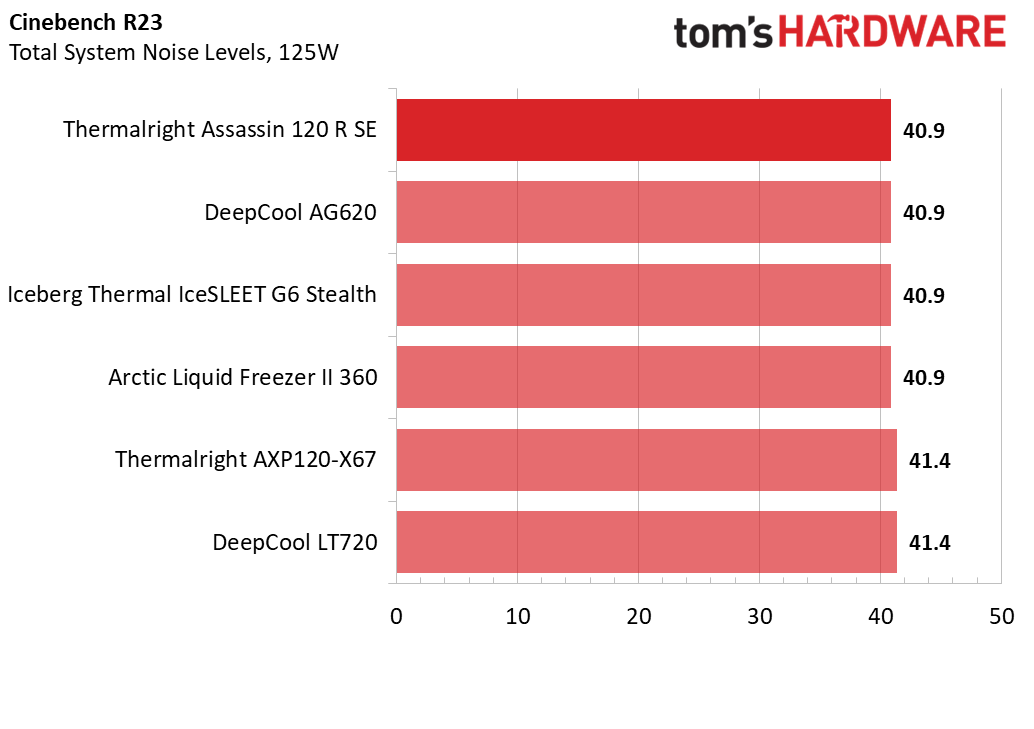Why you can trust Tom's Hardware
Cinebench With No Power Limits
With Raptor Lake’s i9-13900K pushing all-core turbo speeds of 5.5ghz+, even the strongest of coolers hit TJ Max while running Cinebench R23 and other demanding scenarios. As no cooler that we’ve tested thus far can pass R23 testing using a traditional delta over ambient measurement, we’ll be comparing the overall benchmark score and the CPUs clock speeds instead.
The results below are for a 10-minute testing run, but to be sure that was sufficiently long we also retested both Thermalright’s Assassin X 120 R SE and DeepCool’s LT720 with a 30-minute Cinebench test. The results didn’t change much at all with the longer test: The average clock speeds maintained dropped by 29mhz on DeepCool’s LT720 and 31mhz on Thermalright’s Assassin X 120 R SE. Looking at this another way, that’s an incredibly small 0.6% difference in clock speeds maintained, a margin of error difference that tells us that the 10 minute tests are indeed long enough to properly test the coolers.
Because of the difficulty of cooling the i9-13900K in this workload, peaking at roughly 335W if the cooler is capable, we feel the best way to compare coolers here is to record the average power consumption of the CPU.
In this test the AXP120-X67 is the worst performing example, but this is to be expected of a SFF cooler. Given it’s small profile, I didn’t expect it to be able to handle over 150W. I was pleasantly surprised to see the cooler was actually capable of cooling almost 200W on average.
Looking at the wattage results posted earlier, you might think that there would be a significant gap in the benchmark results using the different coolers. DeepCool’s LT720 AIO is cooling nearly 60% higher watts than Thermalright’s AXP120-X67 - so surely performance has a similar gap, right? Well, you’d be wrong. Despite DeepCool’s LT720 cooling 117W more than Thermaltake’s AXP120-X67, it’s benchmark score is only 13.7% faster.
Normally we would also show acoustic results here, but because this cooler can’t sustain loads above 200W it would not be fair to compare the results against other products which are cooling heavier workloads. Instead, we’ll show the acoustic results in the 200W and 125W sections.
200W Cinebench Results
Thermalright’s AXP120-X67 is an SFF cooler, and as such it’s not designed to handle high TDP loads. But it surprised us in being able to sustain 198W in a long term load, though it did run at or near TJMax for the duration of this test.
Get Tom's Hardware's best news and in-depth reviews, straight to your inbox.
Looking at acoustic levels here, Thermalright’s SFF cooler does well. It’s barely louder than the company’s Assassin 120 R SE, and quieter than DeepCool’s offerings. Considering it’s smaller heatsink and slim fan, being able to run almost as quietly as the Assassin 120 R SE while still cooling nearly 200W is indeed impressive.
125W Cinebench results
The lowest power limit I test at is 125W, mainly because this is also the lowest level where I can measure reliable noise measurements. Lower power consumption causes the noise of the CPU cooler to fall below the noise created by the system fans (even while restricted to 35% speed).
When limited power to 125W the AXP120-X67 runs silently and is just barely distinguishable from the rest of the system fans, if you listen closely. It does run a bit warmer than the other coolers tested, but this isn’t a cause for concern given that the increased temperature here doesn’t impact performance and the cooler runs quite silently here.
Conclusion
Intel officially recommends at least a 280mm AIO cooler (or air-cooling equivalent) to get the best possible performance from the Core i9-13900K, but Thermalright’s AXP120-X67 shows that even a small form-factor cooler can handle the Raptor Lake flagship in most scenarios. In the worst case scenarios, the AXP120 provided 88% of the benchmark performance of the same chip using a high-end AIO. Of course, that’s not taking overclocking into account, but that’s pretty darned good for a slim cooler that will fit in even the smallest of SFF cases.
- MORE: Best CPU Coolers
- MORE: Raptor Lake All We Know
- MORE: How to check CPU Temperature

Albert Thomas is a contributor for Tom’s Hardware, primarily covering CPU cooling reviews.
-
smtrejo Awesome review, it helped me to choose this air cooler for my INtel Core i5-12400f, possibly upgrading to i7-12700k.Reply
